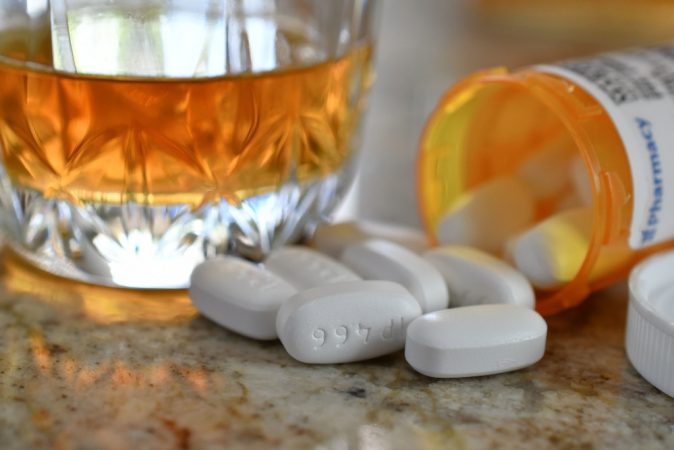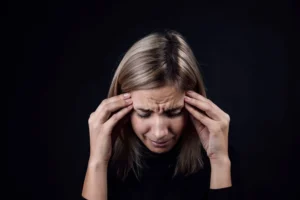The combination of Ambien and alcohol is not uncommon among individuals using prescription sleep aids, yet the risks associated with this combination are severe and often underestimated. Ambien, a widely prescribed medication for insomnia, can be highly effective for treating short-term sleep disturbances when used as directed. However, when mixed with alcohol, a depressant that is widely consumed socially, the effects can be dangerous and potentially life-threatening. This article explores the extensive dangers of mixing Ambien with alcohol, providing a comprehensive analysis of the physical, psychological, and health risks involved.
What is Ambien?
Ambien, known generically as Zolpidem, is part of the sedative-hypnotic drug family. It’s specifically designed as a sleep medication to treat insomnia by activating the neurotransmitter GABA and binding it to GABA receptors in the same location as benzodiazepines. This process generally slows down brain activity, allowing the user to fall asleep more easily. Doctors usually prescribe Ambien only for short-term use, typically ranging from a few days to a few weeks, due to its potential for dependence and severe side effects when misused.
Ambien use can lead to dependency, particularly when used over a longer period than recommended. It is important to monitor for signs of Ambien addiction, which can manifest as a compulsive need to use the medication despite negative consequences. Ambien withdrawal symptoms can occur if the medication is suddenly stopped, including anxiety, mood swings, and trouble sleeping, highlighting the need for a medical detox program to safely manage these symptoms.
Understanding Alcohol Effects
Alcohol impacts the central nervous system and acts as a depressant. In the short term, drinking alcohol can lead to impaired judgment, coordination, and slowed reflexes. Long-term consumption can cause serious health issues, including liver disease, cardiovascular problems, and neurological damage. Alcohol also alters mood, cognition, and overall mental health, which can complicate existing conditions or medications, such as Ambien.
Risks of Mixing Ambien with Alcohol
The combination of Ambien and alcohol increases the sedative effects of both substances, significantly enhancing the risks. Critical effects include severe drowsiness, reduced motor coordination, and profound impairment of cognitive functions. These effects not only increase the risk of accidental injuries but also significantly elevate the potential for an overdose. Since both Ambien and alcohol depress the central nervous system, their interaction can lead to unexpected levels of respiratory depression, which in severe cases, can be fatal.
The Risks of Higher Doses and Drug Interactions
Mixing Ambien with alcohol can tempt users to consume a higher dose of either substance to achieve desired effects, which significantly increases the risk of alcohol overdose and ambien overdose. It is critical to understand the drug interaction between Ambien and other prescription drugs, as these interactions can exacerbate side effects and lead to severe health complications, including CNS depression and respiratory failure.
Biological Impact of Mixing Ambien and Alcohol
Interaction Effects on the Brain
The brain is significantly affected when Ambien is mixed with alcohol. Both substances individually enhance the activity of GABA, a neurotransmitter that reduces neuronal activity, leading to sedation. When combined, these effects are amplified, potentially leading to excessive sedation and dangerously reduced brain activity. This heightened activity can impair the brain’s ability to regulate vital functions such as breathing and heart rate, increasing the risk of life-threatening situations. Moreover, the prolonged combined use of these substances can lead to cognitive deficits, impacting memory, learning, and decision-making processes, potentially resulting in long-term brain damage.
Liver Function and Metabolic Complications
The liver plays a critical role in metabolizing both alcohol and Ambien, but when these substances are taken together, the liver can become overwhelmed, impairing its ability to process other toxins and medications effectively. This strain can lead to an accumulation of toxic substances in the body, which not only damages liver cells but can also cause widespread inflammation and impair other organ systems. Over time, this can lead to serious conditions such as alcoholic liver disease or exacerbate the risk of developing liver cirrhosis. Additionally, the altered metabolism may affect the effectiveness of other medications, potentially leading to adverse drug interactions and unexpected side effects.
Behavioral and Psychological Effects
Memory Problems and Cognitive Impairment
One of the most concerning psychological effects of mixing Ambien with alcohol is significant memory impairment. Individuals may experience episodes of amnesia, where they cannot recall events that occurred while under the influence. This effect can be particularly distressing and may lead to risky behaviors being forgotten, such as driving while impaired. Cognitive functions are also broadly affected, with impairments in attention, reasoning, and problem-solving abilities. These cognitive deficits can affect daily functioning and decrease overall quality of life.
Unusual Behavior and Potential for Sleepwalking
Ambien alone can cause complex behaviors like sleepwalking, and when combined with alcohol, the risk and severity of such behaviors can increase. Individuals may engage in activities while not fully awake, such as cooking, eating, or even leaving the house, all without any memory of the actions later. This can lead to dangerous situations, including accidental injuries or engaging in inappropriate or risky social behavior.
Increased Risk of Depressive Symptoms
Both alcohol and Ambien can exacerbate depression and other underlying mental health disorders. When used together, these substances can significantly worsen depressive symptoms, potentially leading to a deepened depressive state or increased anxiety levels. The sedative effects of the combination can make it difficult for individuals to engage in normal daily activities or seek help, which can lead to social withdrawal and isolation, further worsening mental health.
Emotional Instability and Irritability
The combination of Ambien and alcohol can also lead to increased emotional instability. Individuals may find that they have mood swings or that their emotions are more volatile than usual. This can strain personal and professional relationships and make it difficult to maintain a stable work and home life. Additionally, irritability and aggression can become more pronounced, which not only affects interpersonal interactions but can also lead to impulsive or dangerous decisions.
Long-Term Psychological Impact
Long-term use of Ambien combined with alcohol can lead to chronic mental health problems. The persistent alteration of brain chemistry can make recovery from mental health issues more complicated and can lead to prolonged treatment durations. It may also increase the likelihood of developing other substance use disorders as individuals might seek additional substances to counteract the negative effects of the Ambien-alcohol combination.
These expanded insights highlight the profound and complex dangers associated with mixing Ambien and alcohol, emphasizing the importance of adhering to prescribed medical guidelines and avoiding alcohol consumption during treatment with sedative medications.
Treatment Options for Misuse
If Ambien and alcohol abuse is suspected, it is essential to seek professional help. Treatment options can vary but may include detoxification to manage withdrawal symptoms safely, inpatient or outpatient rehabilitation programs to address polydrug abuse, and therapy sessions to tackle the underlying causes of misuse. Support groups and long-term recovery plans can also be vital resources for maintaining sobriety and preventing relapse.
How to Seek Help
Immediate action should be taken if there is a concern about overdose or severe side effects from mixing Ambien and alcohol. Emergency medical services should be contacted in cases of overdose, while non-emergency situations can benefit from consultation with a healthcare provider or local treatment center to discuss the best course of action for recovery and support.
Addiction Treatment Programs
When dealing with Ambien abuse or addiction recovery, it’s crucial to have access to a comprehensive addiction treatment program. Such programs offer various forms of support, including therapy and medication-assisted treatment, which can help address the underlying causes of substance use disorder. Effective treatment plans are personalized and may involve both inpatient and outpatient options depending on the severity of the addiction and individual needs.
Overcome Addiction at
Safe and Sound
The dangers of mixing Ambien with alcohol are profound and multifaceted, affecting every aspect of an individual’s health and well-being. Awareness and education are key in preventing misuse and ensuring the safe use of medications like Ambien.
If you or a loved one is struggling with drug abuse, reach out to Safe and Sound Treatment to learn more about our drug addiction treatment programs. Our treatment facility is dedicated to providing support to those struggling with drug and alcohol addiction.
FAQs
Seek immediate medical attention if you’ve mixed Ambien and alcohol, as this combination can lead to severe and potentially life-threatening side effects.
No, it is recommended to avoid alcohol completely on days when taking Ambien, as the effects of Ambien can last into the next day.
No, there are no safe levels of interaction between Ambien and alcohol due to the significant increase in side effects and risk of overdose.
Signs of overdose include extreme drowsiness, confusion, slurred speech, impaired motor coordination, and difficulty breathing. If these symptoms are observed, seek emergency medical help immediately.
The first step is recognizing the problem and seeking help from a healthcare provider, who can refer you to appropriate treatment resources such as detox programs and rehabilitation centers.













